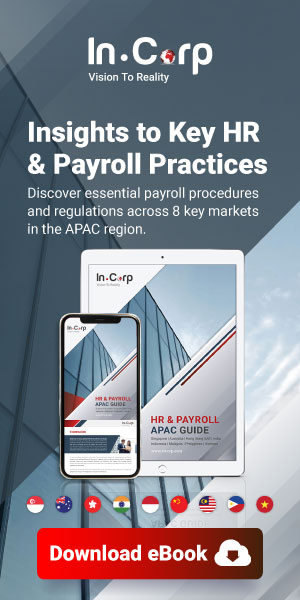Hong Kong’s Resilience Amid The US Tariffs: Navigating Trade Shifts and New Growth Opportunities

In February 2025, U.S. President Donald Trump announced a new round of tariffs on imports from China, Canada, and Mexico, aimed at strengthening domestic manufacturing and addressing trade imbalances.
While these tariffs introduce some adjustments for global trade flows, Hong Kong’s economy remains well-positioned to adapt and thrive due to its strategic advantages as a global financial hub and regional trade connector.
This article examines how Hong Kong is navigating the changing trade landscape, the market’s response to the tariff announcement, and strategic opportunities for businesses in the region amidst the US tariffs.
Hong Kong’s Market Response To The US Tariffs
Following the announcement, the Hang Seng Index (HSI) saw a moderate dip of 2.3%, reflecting initial market reactions to trade uncertainties.
However, historical data suggests that Hong Kong’s financial markets have consistently rebounded from similar trade tensions, underscoring investor confidence in the city’s economic fundamentals.
Hang Seng Index Movements Following U.S. Trade Policy Announcements
| Date of Announcement | Change (%) | Key Market Reaction |
|---|---|---|
| Feb 2025 (Latest Tariff Round) | -2.3% | Short-term market recalibration |
| Sept 2019 (Previous Tariff Round) | -1.5% | Adjustments to trade deal uncertainties |
| June 2018 (First Trade War Tariffs) | -4.9% | Market adaptation to initial tariffs |
Market analysts note that Hong Kong’s resilience stems from its diversified economic base, strong regulatory framework, and global connectivity. While short-term fluctuations are natural, long-term growth prospects remain solid as businesses adjust their strategies to capture emerging opportunities.
Shifting Trade Patterns: Hong Kong’s Evolving Role in Global Trade
Hong Kong’s role as a major re-export hub ensures that it remains integral to global trade. While businesses are adjusting supply chains in response to tariffs, Hong Kong continues to strengthen trade partnerships with ASEAN, the Middle East, and Europe, positioning itself as a gateway to emerging markets.
Hong Kong’s Trade Volume Trends: Adjusting to Global Shifts
| Year | Total Trade Volume (HKD Billion) | Change (%) | Key Market Trend |
| 2021 | 9,250 | +4.5% | Post-pandemic recovery |
| 2022 | 8,520 | -7.9% | Initial trade adjustments |
| 2023 | 8,250 | -3.2% | Supply chain diversification |
| 2024 | 8,100 | -1.8% | Increased regional trade partnerships |
| 2025 (Projected)* | 7,950 | -1.9% | Growth in ASEAN and Middle East trade offsets shifts |
Strategic Opportunities for Hong Kong’s Key Sectors
Several industries in Hong Kong are proactively adapting to the evolving trade landscape. While certain export categories may face mild adjustments, companies are diversifying production locations, expanding into new regions, and leveraging digital trade solutions.
Growth Strategies for Hong Kong’s Key Industries
| Sector | Export Value to U.S. (HKD Billion, 2024) | Tariff Rate (%) | Strategic Response |
|---|---|---|---|
| Telecommunications Equipment | 180.2 | 10% | Expansion into ASEAN and Middle East markets |
| Consumer Electronics | 73.4 | 10% | Supply chain shifts to Vietnam, Thailand |
| Electrical Components | 57.5 | 10% | Increased trade through RCEP agreements |
| Financial Services | N/A | Indirect Impact | Growth in trade financing and digital banking |
Source: South China Morning Post
Key Takeaways:
- Trade & Logistics: Hong Kong’s strategic position in global shipping remains strong, with increased re-exports to ASEAN.
- Financial Services: As businesses adjust supply chains, demand for trade finance and investment advisory in Hong Kong is increasing.
Proactive Government & Business Strategies to Enhance Competitiveness
Hong Kong’s ability to adapt to global economic shifts has always been one of its key strengths. In response to the latest U.S. tariffs, both government policymakers and business leaders are proactively implementing strategic measures to reinforce Hong Kong’s status as a global financial and trade hub.
1. Government Initiatives: Strengthening Hong Kong’s Role in Global Trade
A) Enhancement of Preferential Tax Regimes for Family Offices
The 2024–25 Hong Kong Budget introduces preferential tax regimes aimed at attracting global family offices and asset owners, further strengthening Hong Kong as a premier investment hub.
- Corporate tax relief for businesses that are diversifying supply chains or expanding into new markets.
- Subsidies for SMEs to invest in automation, digital transformation, and re-export operations.
- Incentives for supply chain diversification, encouraging companies to leverage Hong Kong as a regional headquarters.
B) Expansion of Hong Kong International Airport’s Cargo Facilities
A new express cargo facility is under development at Hong Kong International Airport, designed to handle close to 1 million tonnes per year upon completion in 2028.
- Strengthening Hong Kong’s position as a global logistics hub by improving cargo handling capabilities.
- Enhancing cross-border logistics networks with ASEAN and China, reinforcing Hong Kong’s role as a re-export hub.
- Supporting businesses with high-tech and time-sensitive exports, such as pharmaceuticals and electronics.
C) Hong Kong-ASEAN Free Trade Agreement (AHKFTA)
The AHKFTA provides tariff-free access to 10 ASEAN economies, strengthening trade and investment flows between Hong Kong and Southeast Asia.
- Helping businesses expand their regional market share by reducing tariffs and trade barriers.
- Encouraging increased investment flows between Hong Kong and ASEAN markets.
- Strengthening supply chain connectivity across the region.
D) Hong Kong’s Participation in the Regional Comprehensive Economic Partnership (RCEP)
Hong Kong’s integration into RCEP—the world’s largest trade bloc—reinforces its role as a financial and trade hub.
- Providing preferential trade terms with RCEP members, including China, Japan, and South Korea.
- Facilitating greater regional trade cooperation and increased business opportunities.
- Allowing Hong Kong firms to expand supply chain networks across the Asia-Pacific region.
E) Smart Manufacturing Initiatives by the Hong Kong Productivity Council (HKPC)
The HKPC is promoting smart manufacturing by integrating automation, AI, and robotics into local industries.
- Helping businesses transition to Industry 4.0 through government-backed funding programs.
- Boosting productivity and cost efficiency with AI-driven supply chain management.
- Encouraging manufacturers to adopt sustainable production techniques to enhance ESG compliance.
F) Fintech Development in Hong Kong – Hong Kong Monetary Authority (HKMA)
The HKMA is leading fintech development efforts to strengthen Hong Kong’s position as a global financial technology hub.
- Blockchain-based trade finance solutions to improve transaction security and efficiency.
- Regulatory sandboxes that support fintech startups in testing new innovations.
- Expansion of cross-border e-payment solutions to facilitate seamless international transactions.
2. Business Strategies: Expanding Markets & Diversifying Supply Chains
A) Expansion into ASEAN and RCEP Markets
Hong Kong-based businesses are leveraging free trade agreements with ASEAN and RCEP nations to access high-growth markets.
- Encouraging direct trade with ASEAN economies, reducing reliance on U.S.-China trade.
- Strengthening partnerships in manufacturing and technology across Asia-Pacific.
- Providing businesses with preferential tariffs and simplified trade procedures.
B) Shifting Production to ASEAN Countries
To mitigate tariff impacts, businesses are relocating manufacturing to Vietnam, Thailand, and Malaysia while keeping Hong Kong as their global trading headquarters.
- Expanding high-value manufacturing and assembly operations in ASEAN.
- Strengthening regional logistics capabilities to optimize supply chains.
- Diversifying production to reduce risk exposure to geopolitical uncertainties.
C) Trade Financing Solutions
Hong Kong’s banks and financial institutions offer trade credit, supply chain financing, and investment advisory services to help businesses navigate global markets.
- Enhancing liquidity options for import/export businesses.
- Providing customized financing solutions to mitigate trade risks.
- Supporting cross-border transactions with flexible payment structures.
D) Investments in Automation and AI
Businesses in Hong Kong are adopting AI-driven supply chain management tools to improve efficiency and enhance competitiveness.
- Leveraging AI and machine learning to optimize inventory management.
- Automating manufacturing and logistics processes to reduce costs.
- Enhancing predictive analytics to improve decision-making in supply chain operations.
Hong Kong’s Future: A Positive Outlook Amid Global Trade Realignment
The long-term outlook for Hong Kong remains positive as businesses and policymakers continue to adapt, innovate, and strengthen global trade connections.
Potential Future Scenarios for Hong Kong’s Economy
| Scenario | Description | Economic Impact | Business Strategy |
|---|---|---|---|
| Resilient Growth (Most Likely) | Hong Kong expands trade with ASEAN & the Middle East, reducing U.S. reliance. | Stable trade growth, continued investment attraction. | Strengthen ASEAN ties, capitalize on financial hub status. |
| Balanced Adjustment | China-U.S. negotiate partial tariff reductions, stabilizing trade. | Moderate recovery, increased regional trade. | Monitor trade policy changes, optimize supply chain diversification. |
| Global Trade Acceleration | Hong Kong fully integrates into emerging global markets beyond the U.S. | Strong economic resilience, enhanced trade hub role. | Leverage FTAs, expand into high-growth economies. |
Where To Next?
Rather than a challenge, the US tariffs present an opportunity for businesses to strengthen their global footprint. Hong Kong’s free-market policies, world-class infrastructure, and international connectivity ensure it remains a preferred destination for trade, investment, and innovation.
For businesses looking to navigate these changes, InCorp Hong Kong offers expert advisory services to help companies diversify their supply chains, optimise trade strategies, and seize new opportunities in the evolving global economy.
Contact us today to future-proof your business and unlock Hong Kong’s potential in the next wave of global trade growth.


